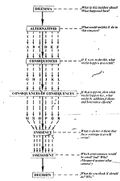Value Analysis: A Method for Analysing Cases in Research Ethics and Research Integrity
Value Analysis: A Method for Analysing Cases in Research Ethics and Research Integrity
Members of The Embassy of Good Science have developed a set of six user-friendly, accessible methods for analysing research ethics and research integrity cases.
These methods have been identified, adapted and presented so that they can be appropriated by all users, without prior philosophical knowledge, in local contexts.The key aim for the case analysis method described here is that it can be appropriated by all users, without prior philosophical knowledge, in local contexts.
In order to apply this method in the analysis of specific cases, it is advised that RECs, RIOs and IRBs engage with the regulatory frameworks and normative standards that apply to their respective organizations in the form of codes of ethics, codes of conduct, funding body standards and, if applicable, broader national and international research ethics and research integrity regulatory documents.What is this about?
Why is this important?
1. What is the incident about?
What is the dilemma?
2. What might (the central character) do to try and resolve the dilemma?
What alternatives exist?
3. What might happen if he or she does each of these things?
What might be the consequences of the various alternatives?
4. What might happen to those who are not immediately involved?
What might be the short- as well as the long-range consequences?
5. What evidence, if any, is there that these consequences would indeed occur?
What could be considered as forseeable consequences?
6. Would each consequence be good or bad? Why?
Is there a positive balance between good and bad consequences?
7. What do you think X should do?
What do you think is the best thing for X to do?


